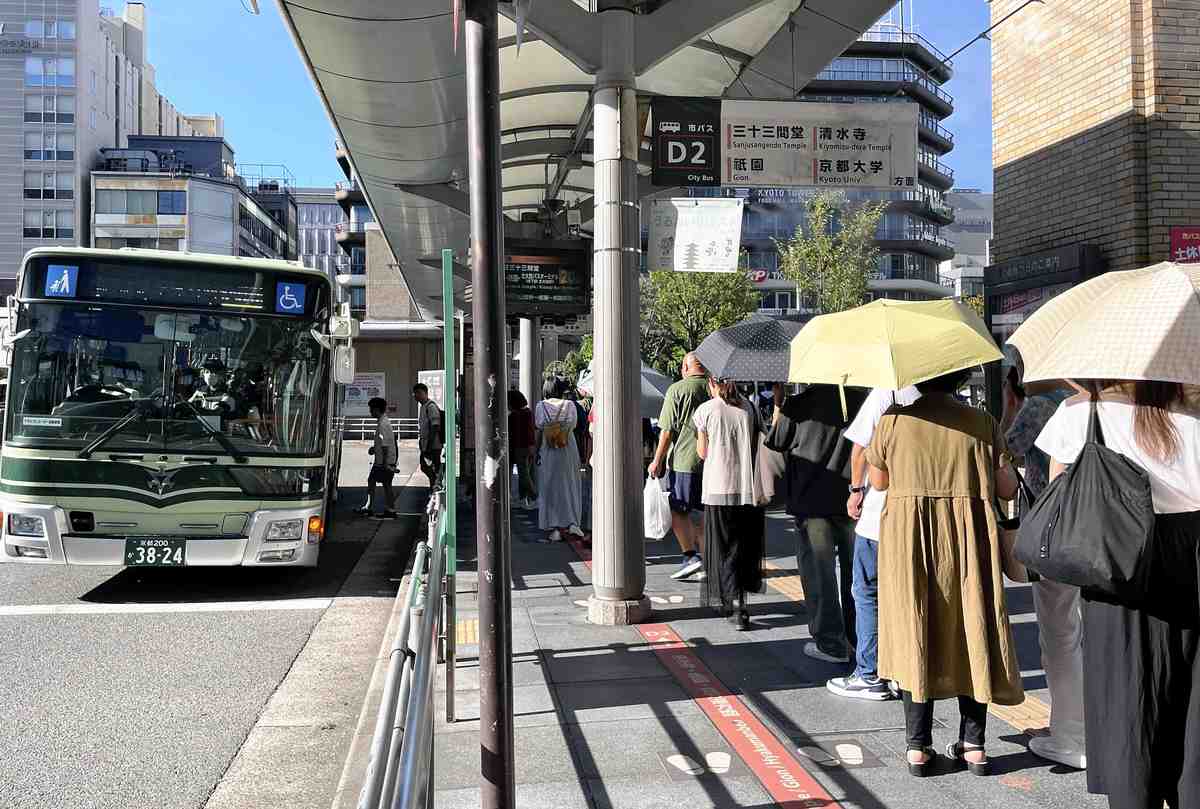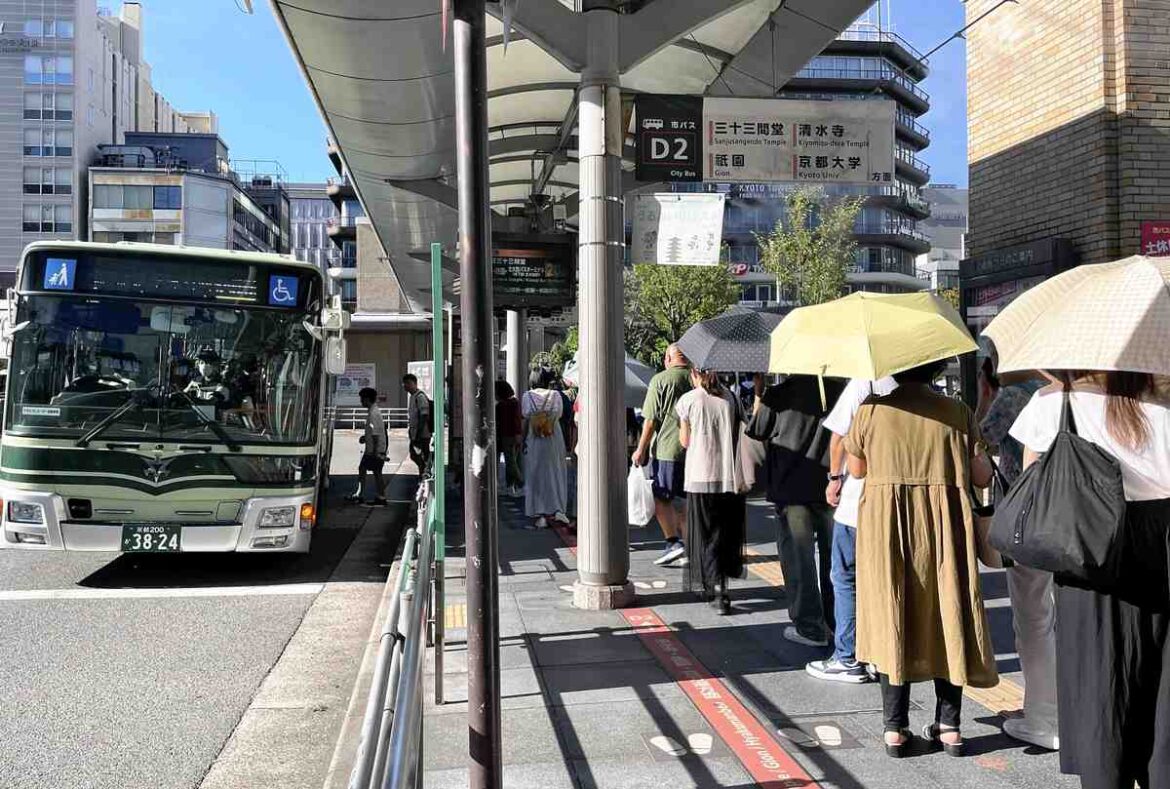
The Yomiuri Shimbun
Tourists and locals queue to board a bus in Shimogyo Ward, Kyoto.
13:14 JST, August 30, 2025
KYOTO — The Kyoto city government is preparing to offer lower bus fares for city residents compared to people from outside Kyoto, including tourists, amid worsening overtourism.
City officials said the plan is progressing, although technical and legal issues remain. If realized, it would be the first attempt of its kind in the country.
Mayor Koji Matsui announced that he aims to realize the idea by fiscal 2027 at a city assembly meeting in February 2024.
Overcrowding on Kyoto city buses, an essential part of transportation for city residents, has developed into a major problem in the city. As a result, Matsui pledged to introduce the different bus fares during his mayoral election campaign in February 2024. He said that the main purpose of the plan is to show residents how tourism can help enrich their lives, rather than to alleviate congestion.
The city government in April appointed a section chief at the Transportation Bureau to oversee preparations for the new bus fare system.
“We have yet to clear all the practical issues, which we need to do before we can put the system into operation,” Matsui said on Aug. 6. “We are tackling the issues simultaneously.”
Initially, there were three obstacles: how to distinguish between city residents from other people, whether there are any legal issues, and how to cooperate with private bus operators.
After repeated consultations with the Land, Infrastructure, Transport and Tourism Ministry and the Digital Agency, the city officials said they are confident they can make the plan a reality.
“A few years ago, the idea was thought to be impossible, but now we can see it in the future, as it seems that it could be allowed if it contributes to combating overtourism,” said Nobuyuki Kitamura, head of the Kyoto city transportation bureau.
In order to distinguish between city residents and other people, the planners are considering linking the My Number identification card system to transportation IC cards or credit cards.
The road transportation law does not permit unfair discriminatory treatment against passengers, but discussions with the central government regarding interpretation of the law are progressing smoothly, the city officials said.
An issue still to be considered is how to cooperate with private bus operators. Setting lower fares for residents on city buses could affect private bus operators’ profits. It may be necessary for private buses to implement the same price system or for the city to compensate the operators for their losses.
Dual pricing at tourist sites
Tourist sites and restaurants across the country are increasingly introducing “dual pricing” systems that distinguish between foreign visitors and domestic customers, and the method is gaining attention as a countermeasure against overtourism.
The admission fee for the theme park “Junglia Okinawa,” which opened in Okinawa Prefecture in July, is set at ¥6,930 including tax for domestic visitors, while foreign visitors pay ¥8,800 including tax. Himeji Castle in Himeji, Hyogo Prefecture, plans to raise its admission fee for tourists from outside the city to ¥2,500 from 2026, 150% higher price than the fee city residents would pay.
Wakayama University Prof. Tsuyoshi Kigawa says that the trend is a natural progression in Japan, which is becoming a tourism-oriented nation.
“The current challenge is to satisfy both the tourism industry and the lifestyles of locals,” Kigawa said. “It will be important to create a system that benefits people who live in areas popular with tourists.”


AloJapan.com